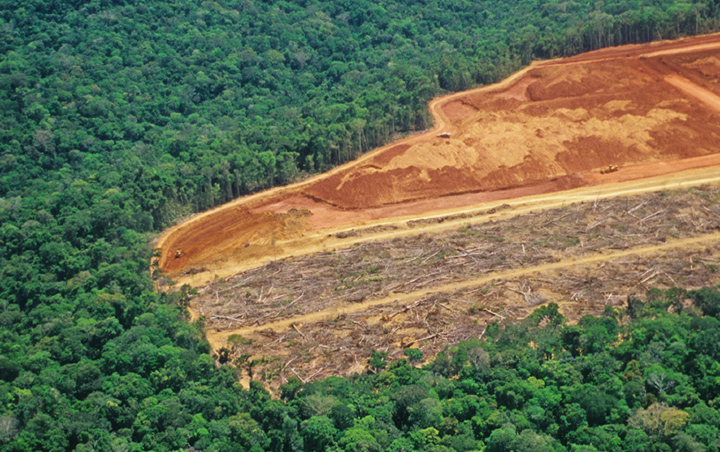
By:
- Henry DeVries
Published Date
By:
- Henry DeVries
Share This:
Joint Program with World Wildlife Fund Program Aims to Train Professionals from Around World in Measuring Forest Carbon

©iStockphoto.com/luoman
UC San Diego and the World Wildlife Fund (WWF) will launch in August a new international certificate program in Advanced Terrestrial Carbon Accounting. Application and scholarship information can be found at http://extension.ucsd.edu/TCA. The deadline for applications is June 15.
This unique program will train professionals from around the world on how to measure forest carbon—a key step to unlocking new public funding to protect forests and fight climate change. The clearing and burning of more than 10 million hectares of tropical forests per year spews almost 200 tons of carbon dioxide (CO2) per second into the atmosphere, causing an estimated 15 percent of global human greenhouse gas emissions.
The Kyoto Protocol's emissions–trading framework creates economic incentives for nations to reduce greenhouse gas emissions cost effectively. Developing countries can find funds to preserve their forests, which in turn helps save the earth by reducing carbon emissions. This creates a need for a new breed of ecological protector, the terrestrial statistician.
By using the latest cutting-edge scientific tools and methods to measure forest carbon, participants will be able to provide rigorous estimates of how conserving tropical forests avoids emissions of greenhouse gases. In turn, the new certificate course will help participants advance major global initiatives such as Reducing Emissions from Deforestation and Degradation in Developing Countries (REDD+). REDD+ is a global initiative aimed at helping developing countries secure international funding to preserve their forests, which in turn reduces carbon emissions.
“This course will equip the emerging generation of scientists, government officials, and society at large to understand this large driver of climate change with advanced skills,” says Hugo Villar, director of Science and Technology at UC San Diego Extension. “UC San Diego is recruiting some of the best instructors in the world to ensure this course’s quality.”
Lou Leonard, vice president, Climate Change at World Wildlife Fund added: “We are on the threshold of proving that pay-for-performance conservation can work at large jurisdictional scales. These efforts have momentum and new funding but require more detailed science on how much carbon different ecosystems hold, and how many emissions can be prevented through conservation. This collaboration between the University of California, WWF and other partners will help us cross this threshold by making some of the world’s best conservationist scientists even better.”
“There is still a large capacity gap in professionals who can accurately and transparently measure and model terrestrial carbon,” said Benoit Bosquet, of the Forest Carbon Partnership Facility at the World Bank. “Advanced training programs like the one being offered by the University of California, San Diego will supplement existing efforts and ensure that REDD+ continues to evolve toward higher standards of credibility,”
The course will be held over four weeks in August 2013 on the UC San Diego campus. The certificate will cover IPCC Good Practice Guidelines, remote sensing, Geographic Information Systems (GIS), emissions factors, activity data, various new technologies and methods to estimate carbon, statistics, uncertainty analyses, and communicating results.
Partial scholarships will be awarded to qualified applicants. However, all applicants should fully explore opportunities with their host country government and/or organization for financial support before applying for a scholarship.
Share This:
You May Also Like
Stay in the Know
Keep up with all the latest from UC San Diego. Subscribe to the newsletter today.


